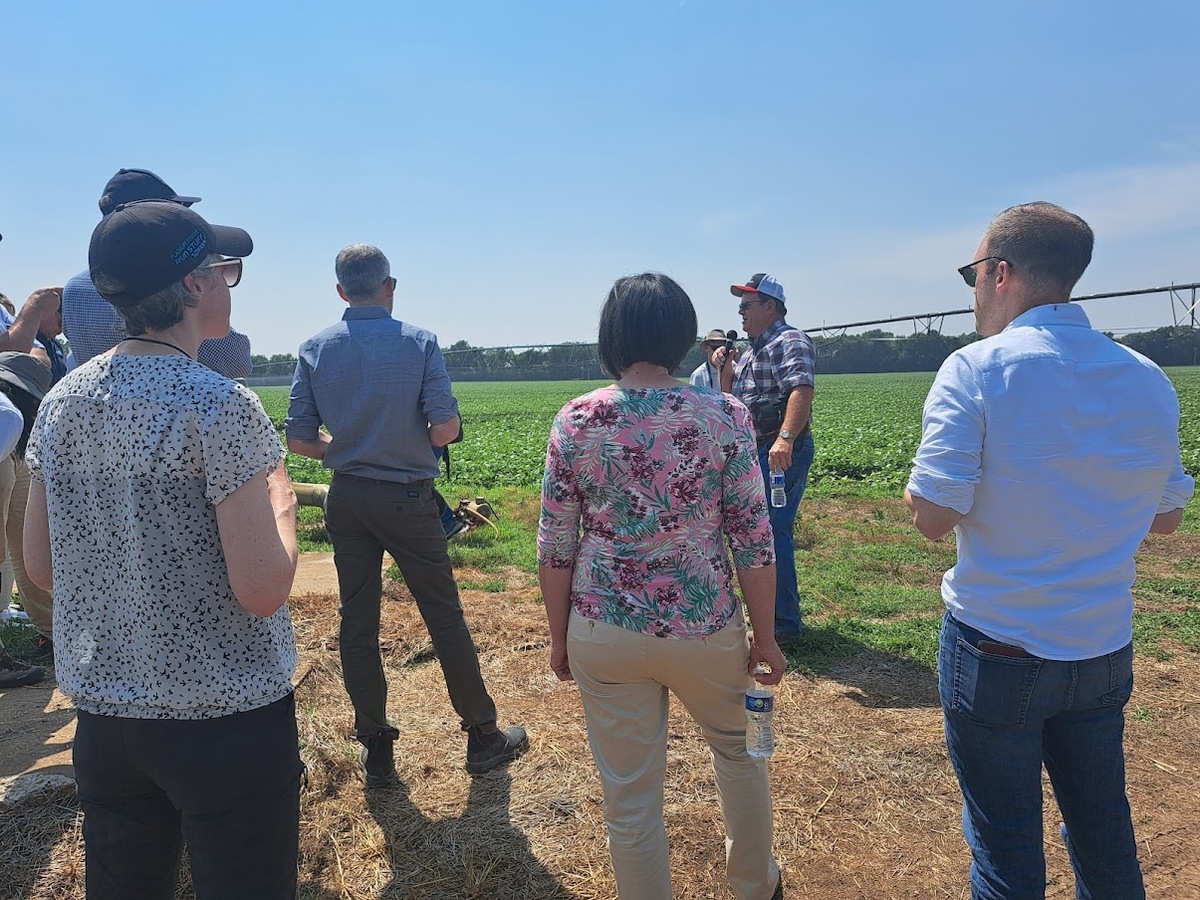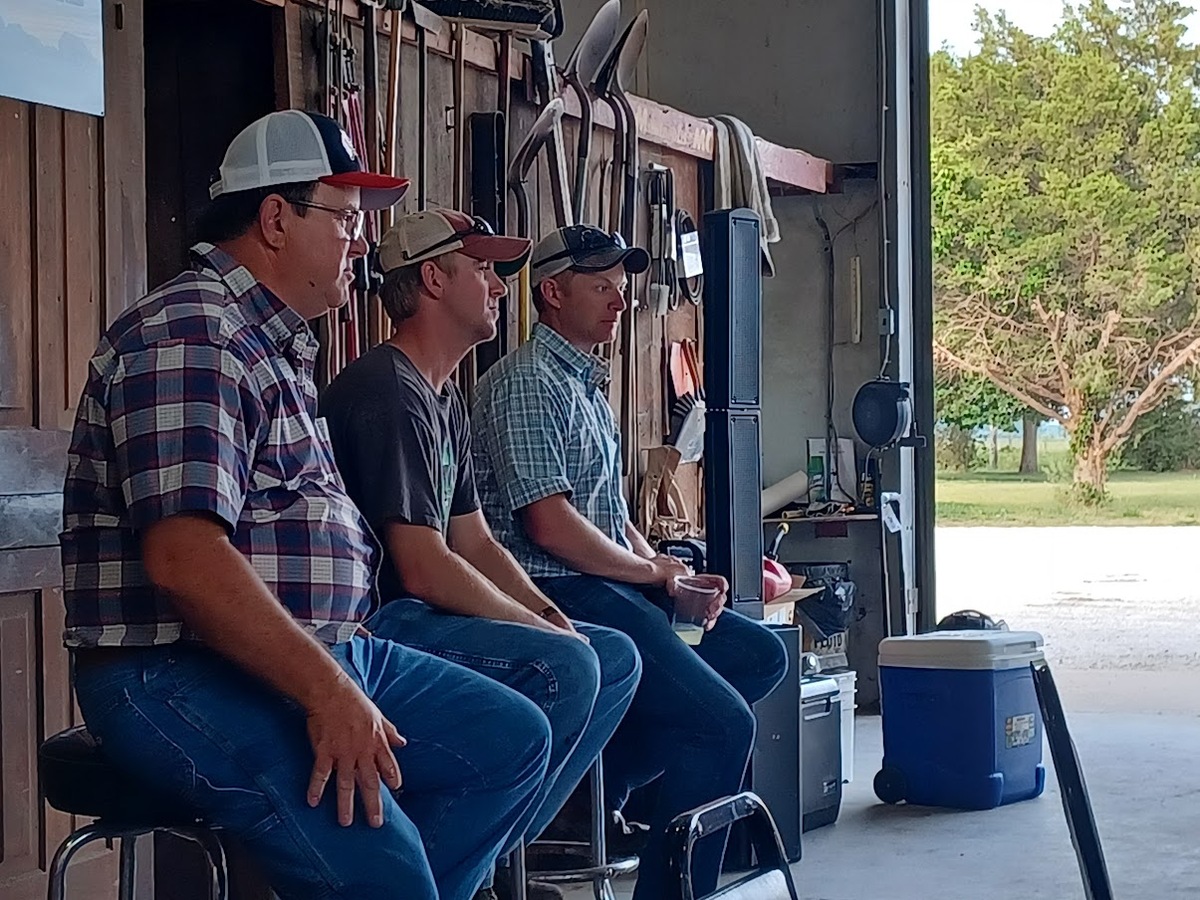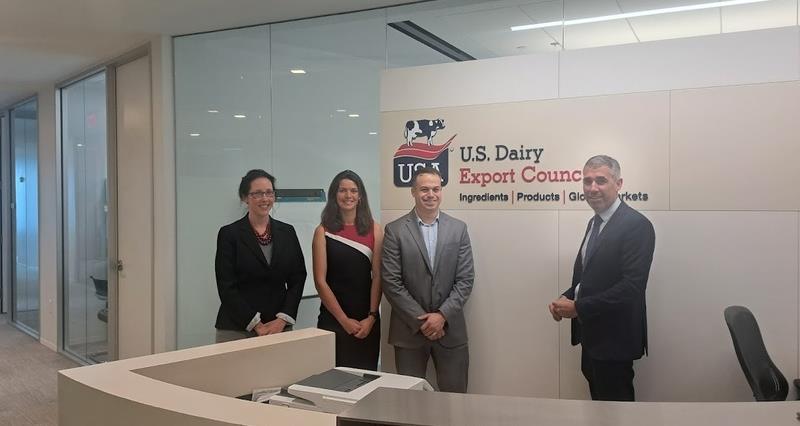My kids used a clear lid to watch the kernels dance around the base of the saucepan before exploding into balls of large, fluffy popcorn. Waiting for the magic of popping corn with them, I reflected on Steve Turner and his family who had gifted the homegrown kernels to me while visiting their 3,500-acre farm in the rich soils of Chandlerville, Illinois.
Importance of irrigation
The Turner family grow maize, green beans for canning, and popcorn, fitting two crops into a growing season. Sitting above an aquifer, the crops are continually showered with 500m pivot irrigators rotating every two days. Irrigation water is not limited in this part of the world and, whilst farmers monitor leaching, they are not obliged to share their findings or data.
Water quality
Water quality has not escaped farming in Illinois, with excess nutrient levels contributing to the hypoxic conditions found where the Mississippi meets the Gulf of Mexico.

In 2008, Federal Law challenged States to improve water quality, resulting in the University of Illinois working with industry and farmers to set a target of reducing nitrogen and phosphorous levels by 40% compared with 1990 levels.
Working together for improvements
A ‘no blame game’ culture was adopted by all stakeholders, each recognising the complexity of nutrient management, and working together to improve water quality whilst prioritising food production.
My take-home message is that farm policy in the Midwest is incentivised and voluntary, not legislated and mandatory. What a novel approach.
Back on the Bell-Turner farm, we saw some of the steps farmers are taking to help improve water quality, such as set aside conservation fields adjacent to waterways, managed by mowing or grazing whilst receiving an annual payment comparable to Countryside Stewardship.
Incentivising cover crops
Incentives like a cost sharing scheme and a $5 credit per acre for crop insurance has encouraged around 140 million acres of cover crops to be planted across the Midwest.
Farmers can claim payment on an annual basis, after the cover crop has been established, thus allowing flexibility for farmers to choose in real time if it is appropriate to plant a cover crop, depending on weather conditions.

Next generation
We discussed the challenges faced by those beginning their farming career. We spoke with Steve’s son Jacob and it became evident that gaining a foothold on the ladder is challenging both in the US and the UK.
He and his brother have developed their own haulage business and a seed business, planting trial plots to help customers decide on next year’s varieties, in addition to the core farming enterprise.
Challenges and commitment
Jacob was joined by Nathan and Jenny Ring to discuss the challenges faced by future farmers. I was struck by the passion and determination of this young couple who ‘work by day so that they can farm by night’. They championed future farming leader schemes which develop skills, and young farmer groups as a support network when the scale of the challenge is undeniably high.
The Bell-Turner farm thrives due to the family commitment, and the focus on succession, weather and the regulatory environment. The latter recognises that environmental gains cannot come at a cost to the productivity and profit of farms, advocating the importance of food production.
Back in my kitchen, as I watched their popcorn kernels explode, I could not help feeling envious of this regulatory approach.

